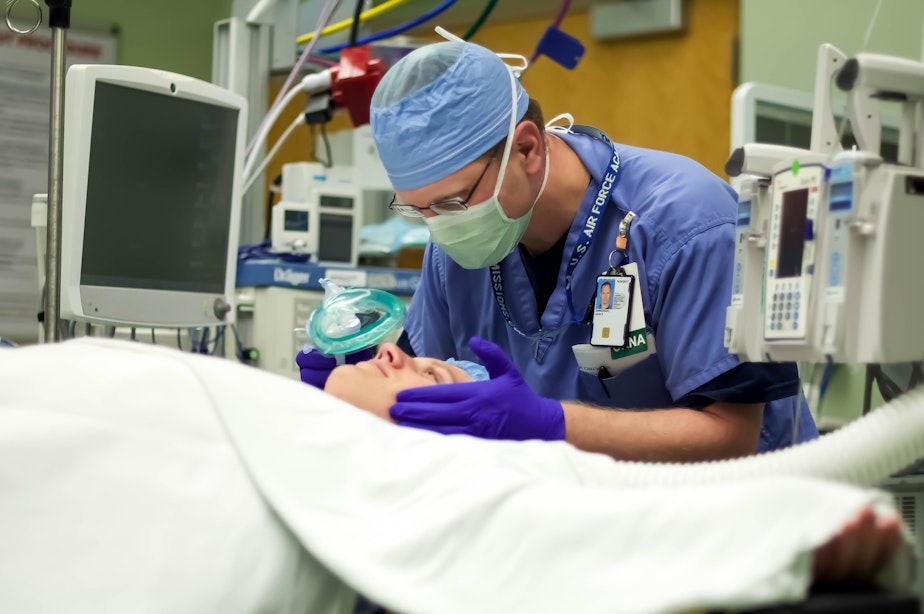Should nurses be allowed to work like doctors at the VA?

Nurses may soon do work doctors normally do at the Department of Veterans Affairs.
This includes nurses performing work that anesthesiologists have been doing – and that has some physicians irate.
These would be highly trained nurses – nurse practitioners, clinical nurse specialists and certified registered nurse anesthetists. Right now at VA medical centers, these nurses see patients if they’re closely supervised by a doctor.
Under a VA proposal, the nurses would work independently.
Penny Kaye Jensen, a nurse practitioner, said this would reduce staffing shortages and get veterans seen more quickly. She said that these nurses are trained to perform these tasks – but they don’t currently get the opportunity.
Sponsored
“If nurse practitioners were able to function to the level of their education,” Jensen said, “we would be able to see patients in a more timely manner. We would be able to decrease those wait times in primary care.”
The rule would allow all of the VA’s nearly 6,000 highly trained nurses – called “advanced practice registered nurses” – depending on their training to do routine checkups, manage chronic conditions like diabetes, and provide anesthesia.
Jensen said the policy would bring the VA in line with the Department of Defense, the Indian Health Service and civilian hospitals in some states.
But physician groups say the change would give nurses too much authority – and put veterans at risk.
Dr. Jeffrey Plagenhoef, president-elect of the American Society of Anesthesiologists, said the VA hasn’t properly researched the impact on complicated surgeries.
Sponsored
“Anesthesiology is inherently dangerous and it becomes even more dangerous as sickness increases,” Plagenhoef said. “Veterans are more likely to have had heart attacks, strokes emphysema, congestive heart failure. And conditions such as those which dramatically increase the likelihood of problems before during and after surgery."
Jensen said this rule would save money. Specially trained nurses at the VA earn less than doctors.
But this wouldn’t necessarily solve a doctor shortage. There is no shortage of anesthesiologists at the VA, according to Plagenhoef.
He called it an oversight to give these nurses independence “where there is no shortage of physicians and there is no access to care problem.”
But nurses reject the assertion that VA patients are too complex for nurse anesthetists to manage safely.
Sponsored
Juan Quintana, president of the American Association of Nurse Anesthetists, said they've proven they can work independently in the operating room.
“I personally work in a rural facility in northeast Texas and that is the model of practice that we utilize today and it is very effective, very safe. Our outcomes are amazing,” Quintana said. “We take care of patients of all ages all types of surgeries for all kinds of procedures without any difficulty whatsoever.”
Since the proposal was announced, more than 200,000 comments have poured into the federal government – far more than is typical for a proposed policy change. The VA hasn’t finished counting them yet. The comment period ended last week.
Once they do, the VA under-secretary for health will decide whether a policy change will occur – but it likely will be a while before that happens.

